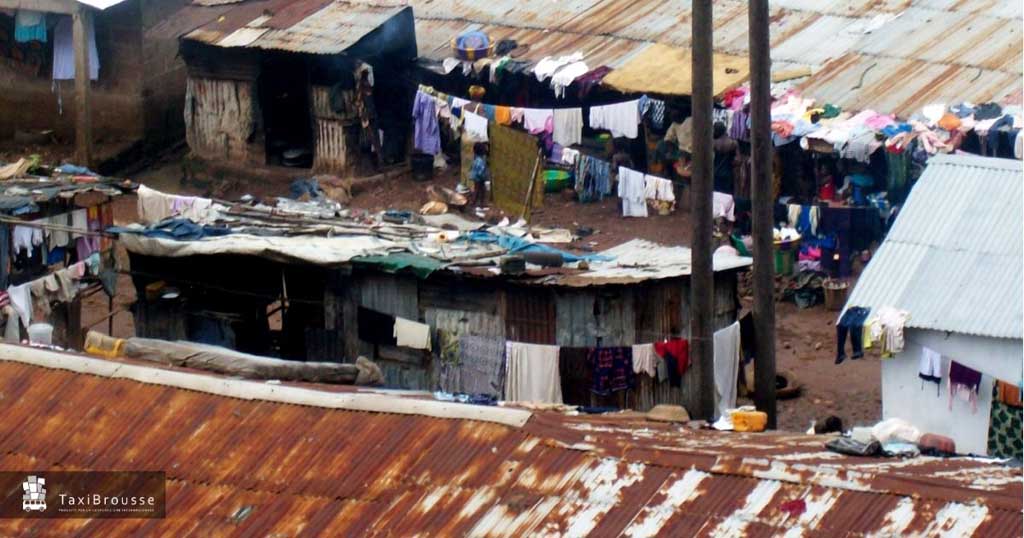A popular joke in the 90’s, a time of great interventions and experimentations on urban poverty, said that there’s only one thing worst than a slum: a planned slum.
Planning the unplannable is undoubtedly a bad idea, at least with methodologies used for static and controlled realities, that could inevitably never adapt to temporary and ever-changing situations.
Multiple studies have demonstrated that a slum is hardly ever reigned by absolute chaos, but is “governed” by systems of internal rules that often concern also the organization of spaces; the planning interventions not only fail their objectives, but also destroy these fragile balances, making the situation even worst.
By observing these urban realities, the first ones to end up in the dock usually are the exponents of local political élites, often unprepared, corrupted, greedy for power and money, as well as little prone to care for the citizens’ problems.
A bleak, and unfortunately often realistic, picture (not only in Africa…), but to consider it as the only cause of the persistence of these phenomena would be too simplistic: urban poverty is one of the most complex themes of our contemporary era, and to think that it can be solved only with some “good will” is ridiculous and tremendously naive.
An impressive amount of factors, such as the numeric entity of the phenomenon, the urban growth rates, the chronic obsolescence of infrastructures and the reduced efficiency and authoritativeness of the institutions, inevitably determine a sort of psychologic barrier to face a problem so difficult to solve and with such a complex and long-term management.

The heart of the planning matter, in many urban realities of the Global South, appears very close to what Zygmunt Bauman says:
“local politics – and particularly urban politics – has become hopelessly overloaded far beyond its carrying and performing capacity. It is now expected to mitigate the consequences of a globalisation running out of control, while using means and resources that that self-same globalisation has rendered pitifully inadequate. “
Bauman calls into question the “western” mentality, fobbed off as the only global method for the resolution of local problems, but also the attitude of the local élites.
These élites have often lacked the autonomy of thought and the clarity of enlightened figures, as rare as opposed by international powers that often orchestrated their physical elimination.
Like the case of Thomas Sankara, president of Burkina Faso from 1984 until his murder in 1987, that described the concept of development for his country as:
The search of wellness for all, with an autonomous development focused on basic needs, direct democracy, food self-sufficiency and people’s economy with internal resources.
Wellbeing means first of all to provide food, water, health and education to the people, it means a change in the relationships between urban and rural contexts, it’s the liberation of women from exploitation, it’s cultural independency, it means counting on our own strength, it’s redistribution of richness, better of poverty with the fight against the privileged.
Concepts like people’s economy and redistribution of poverty are so far from our culture that they result almost incomprehensible, they don’t have any link with Marxism nor with “guaranteed minimum income” that are nowadays trending so much.
They are simply “other” concepts that we can try to understand, but that are based on different prerequisites.
This is probably the challenge that we struggle to take: to change our perspective, accepting to question our system of thought, still often derived from the twentieth century.
We fill up pages and plump never-ending debates on how to classify, frame and, in a way, formalize self-construction phenomena, we continue to collect failures by applying the “classical” paths, that try to make some aspects of informality as official.
Maybe the path to better explore is the opposite one: don’t try to formalize the informality, but de-formalize the official tools we use to plan the cities, unsettling the fundamental concepts on which the theories of urban planning born in the West are based, being them inadequate for dynamic and constantly precarious contexts.
An enormous, but at the same time wonderfully compelling, challenge.

Federico Monica
Architect and Urban Planner, Ph.D. in Urban and regional planning. Founder of Taxibrousse studio, specialized in informal settlements assessment, slum upgrading strategies, low-cost and low-tech building processes.
Share this page!
Featured posts
English version by Carla Procida – interior and service designer
TaxiBrousse is a design and consultancy studio for international development, we works in the fields of engineering, architecture, urban planning and environmental protection.
Follow us





